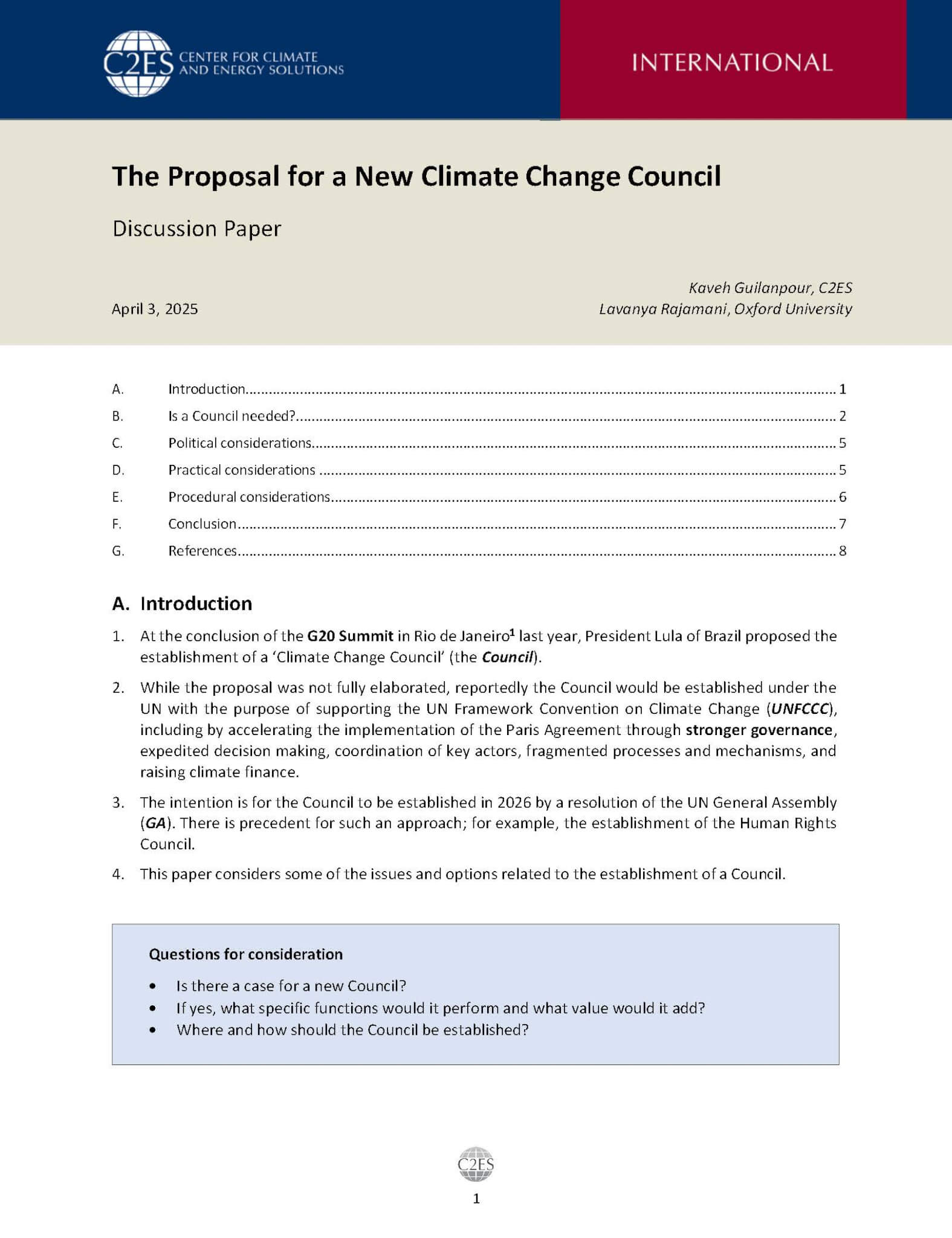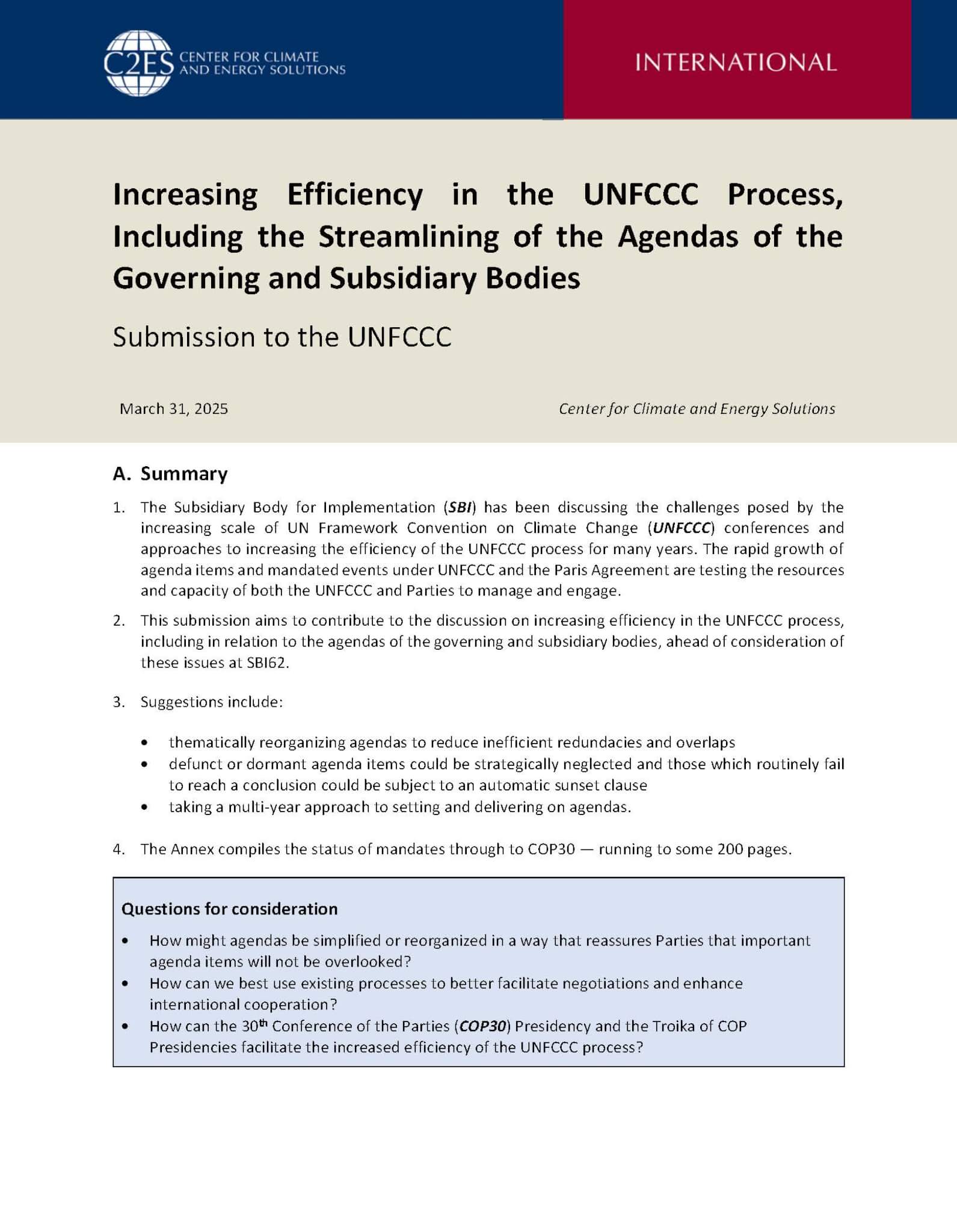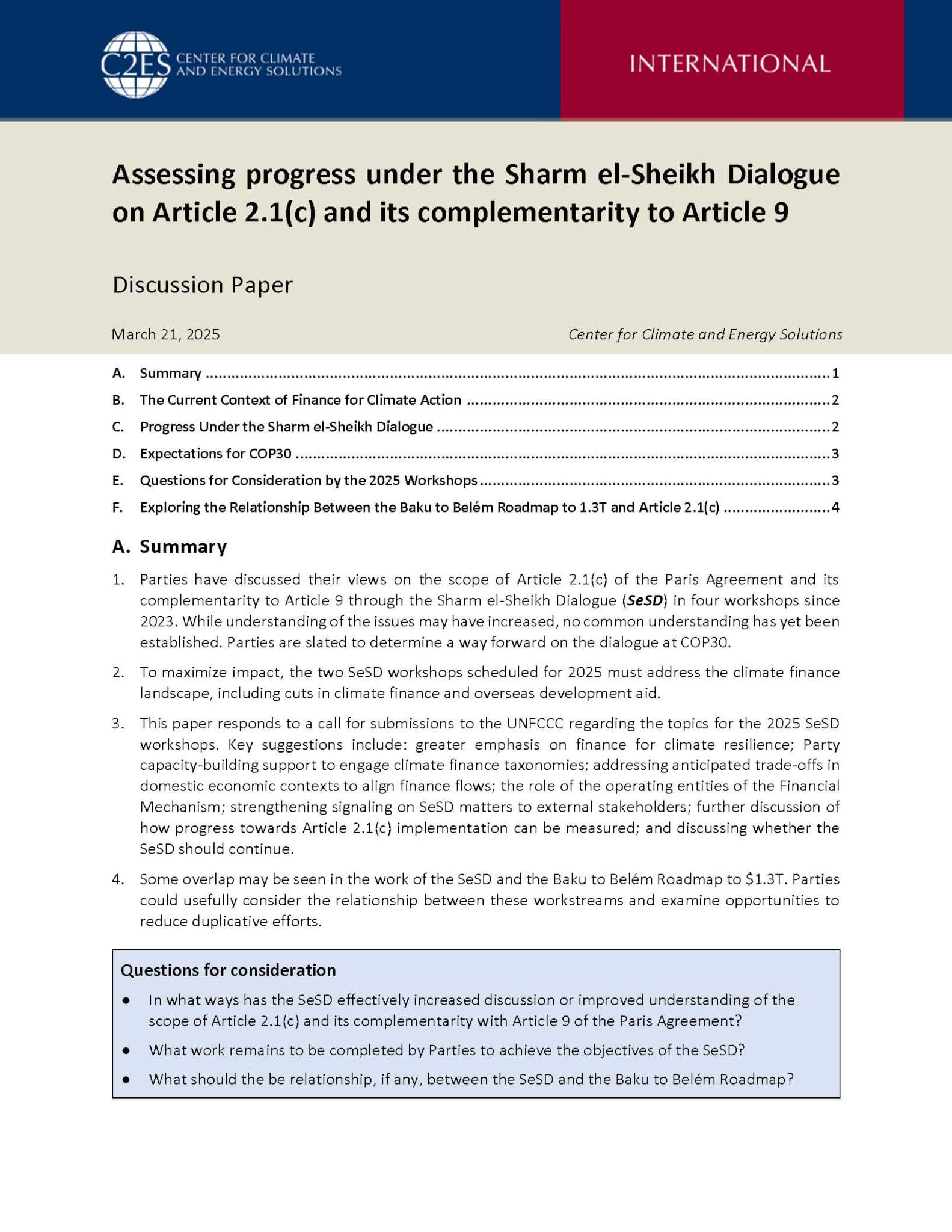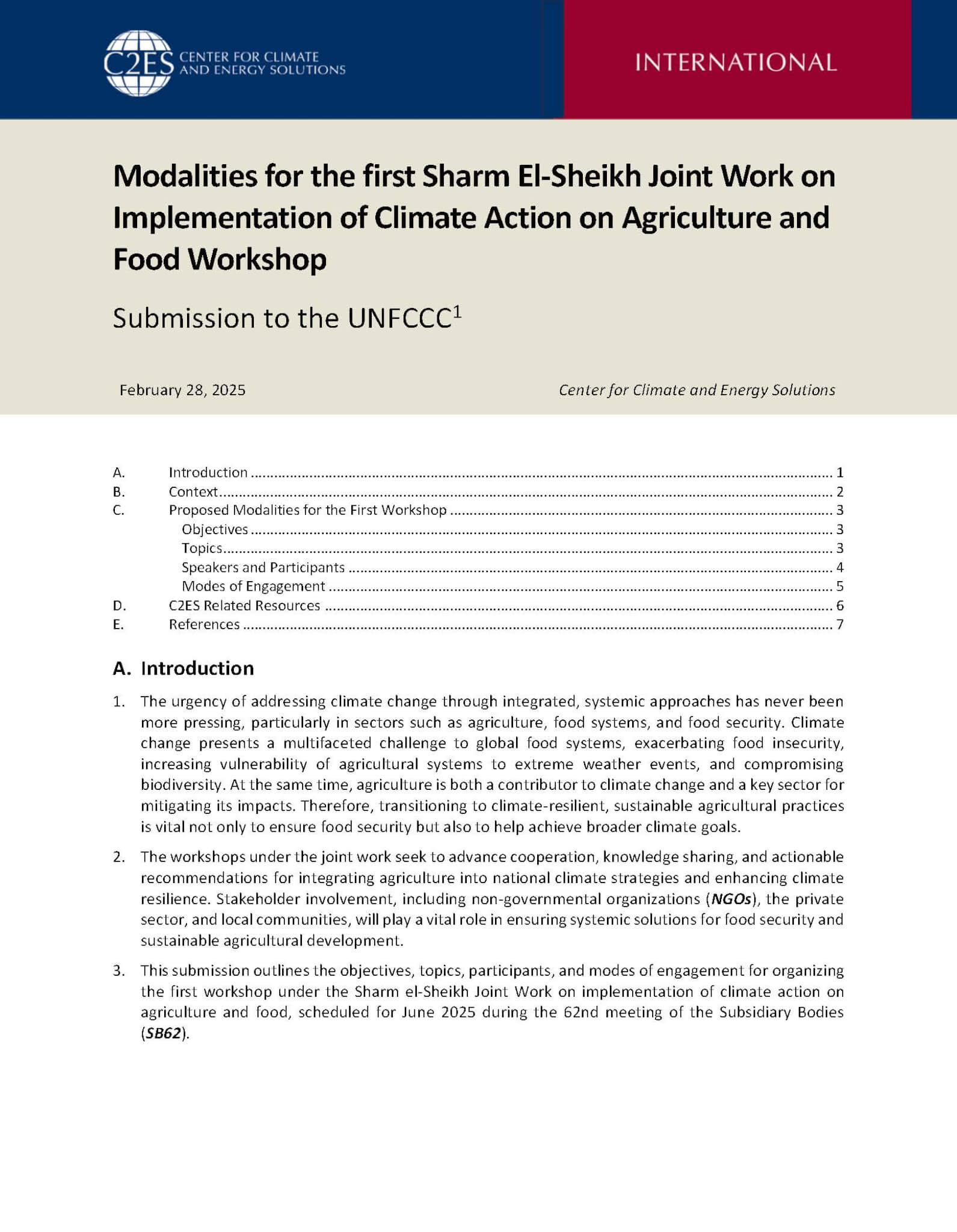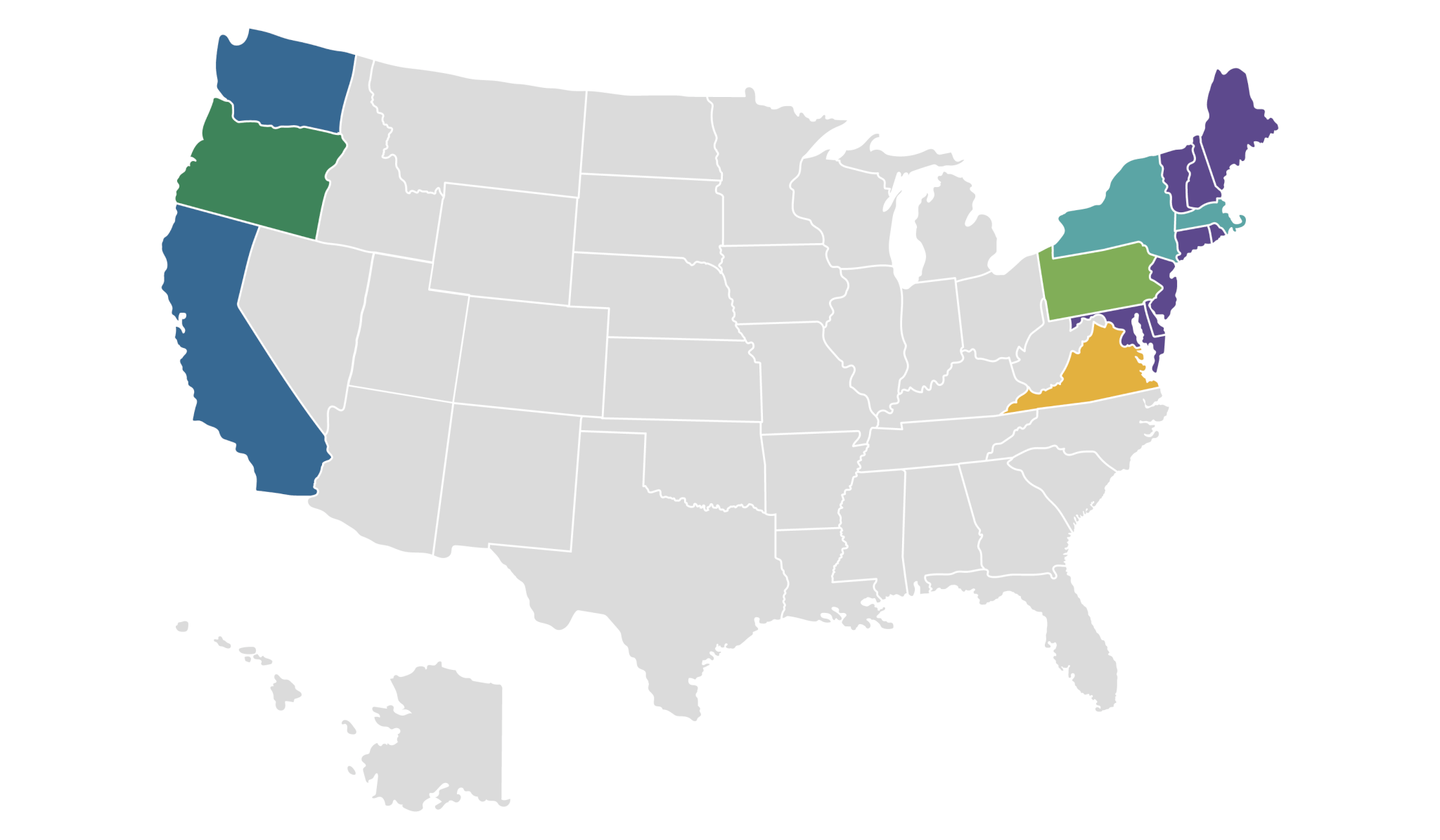Given a challenging political environment, the Paris Agreement (PA) is facing scrutiny about its effectiveness and impact. But it is indeed working as intended by reflecting back what the global community is doing to combat climate change and pointing the way forward as to what more needs to be done collectively. Given geopolitical and economic […]



